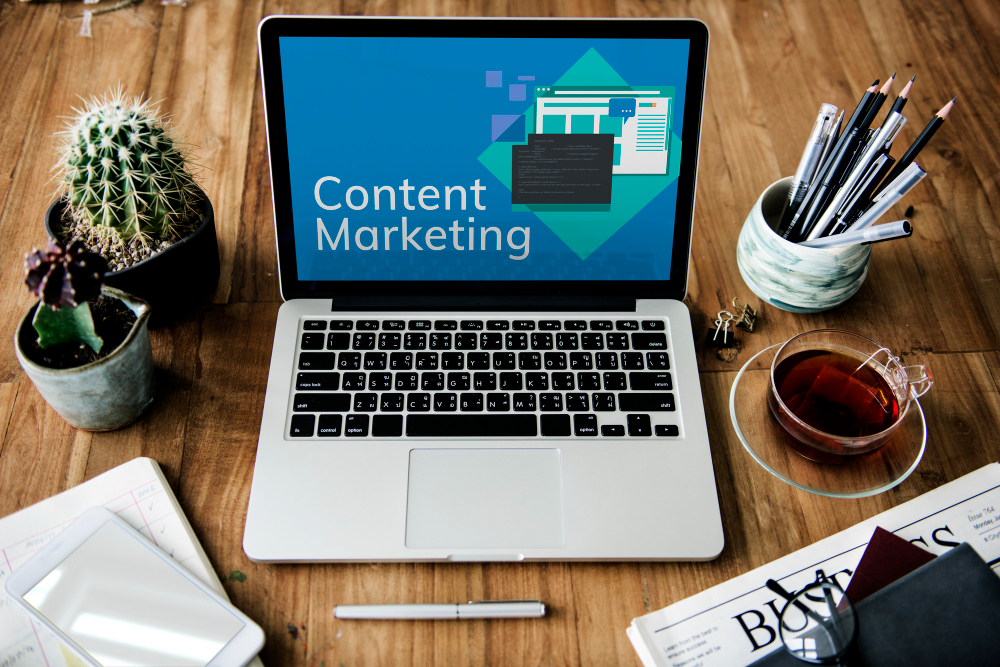How AI Agents Will Transform Content Marketing in 2026

The landscape of content marketing is evolving rapidly, and by 2026, AI agents are expected to become a driving force behind this transformation. Businesses that adopt AI-driven strategies will gain a significant competitive advantage, improving efficiency, personalization, and ROI. In this blog, we explore how AI agents will revolutionize content marketing and what brands need to know to stay ahead.
Understanding AI Agents in Content Marketing
AI agents are intelligent systems capable of performing tasks autonomously, learning from data, and interacting with digital platforms. Unlike traditional automation tools, AI agents can understand context, predict user behavior, and generate insights in real-time. In content marketing, these agents are already assisting with content creation, curation, analytics, and distribution. By 2026, their role will expand, making content strategies more dynamic, personalized, and data-driven.
Hyper-Personalization Through AI Agents
One of the most significant impacts of AI agents will be hyper-personalization. Modern consumers expect content tailored to their interests, demographics, and behaviors. AI agents can analyze user data from multiple touchpoints, including social media, website interactions, and purchase history, to create highly personalized content.
For example, AI agents can generate individualized email campaigns, product recommendations, and even dynamic website content that adapts based on real-time user behavior. This level of personalization boosts engagement, improves customer retention, and ultimately drives conversions.
AI-Powered Content Creation
By 2026, AI agents will take content creation to the next level. Beyond generating blog posts and social media captions, advanced AI can develop comprehensive marketing materials, such as video scripts, interactive content, and infographics, all optimized for SEO.
AI tools can also analyze trending topics and audience preferences to generate content ideas that resonate with the target market. This ensures marketers spend less time brainstorming and more time executing campaigns that deliver measurable results.
Moreover, AI agents can maintain a consistent brand voice across multiple channels, ensuring that messaging remains coherent and aligned with brand identity.
Enhanced SEO and Content Optimization
Search engine optimization (SEO) is evolving alongside AI technologies. By 2026, AI agents will be essential for optimizing content to meet Google’s algorithm updates, which increasingly favor user experience, relevance, and authority.
AI agents can perform in-depth keyword research, analyze competitor content, and provide actionable recommendations for on-page SEO improvements. They can also automate meta descriptions, title tags, and internal linking strategies to improve search engine rankings. Additionally, AI-driven predictive analytics will allow marketers to forecast which topics are likely to trend, giving them a strategic advantage in content planning.
Real-Time Analytics and Insights
Data-driven decision-making is at the core of successful content marketing. AI agents can monitor content performance in real-time, analyzing metrics such as engagement rates, bounce rates, and conversion rates.
By leveraging machine learning algorithms, AI can identify patterns and suggest actionable improvements, such as content refreshes or changes in distribution strategy. This proactive approach ensures that content marketing efforts are not only efficient but also adaptive to changing audience behavior.
Cost and Time Efficiency
AI agents significantly reduce the time and resources required to produce high-quality content. Tasks that once took hours or days, such as keyword analysis, content drafting, or social media scheduling, can now be executed in minutes.
This efficiency allows marketing teams to focus on strategic initiatives, creative campaigns, and customer engagement rather than repetitive tasks. Additionally, businesses can scale their content marketing efforts without proportionally increasing budget or manpower.
Preparing for the AI-Driven Future
Businesses that want to stay competitive in 2026 must embrace AI agents in their content marketing strategies. Investing in AI technology, training marketing teams, and adopting AI-first workflows will be critical for success. Brands that leverage AI effectively will benefit from personalized content, improved SEO performance, and measurable ROI.
Conclusion
The future of content marketing is undoubtedly intertwined with AI agents. By 2026, these intelligent systems will transform how brands create, optimize, and distribute content, making campaigns more personalized, efficient, and impactful. Companies that adapt early to this AI-driven shift will not only gain a competitive edge but also deliver exceptional experiences to their audiences.